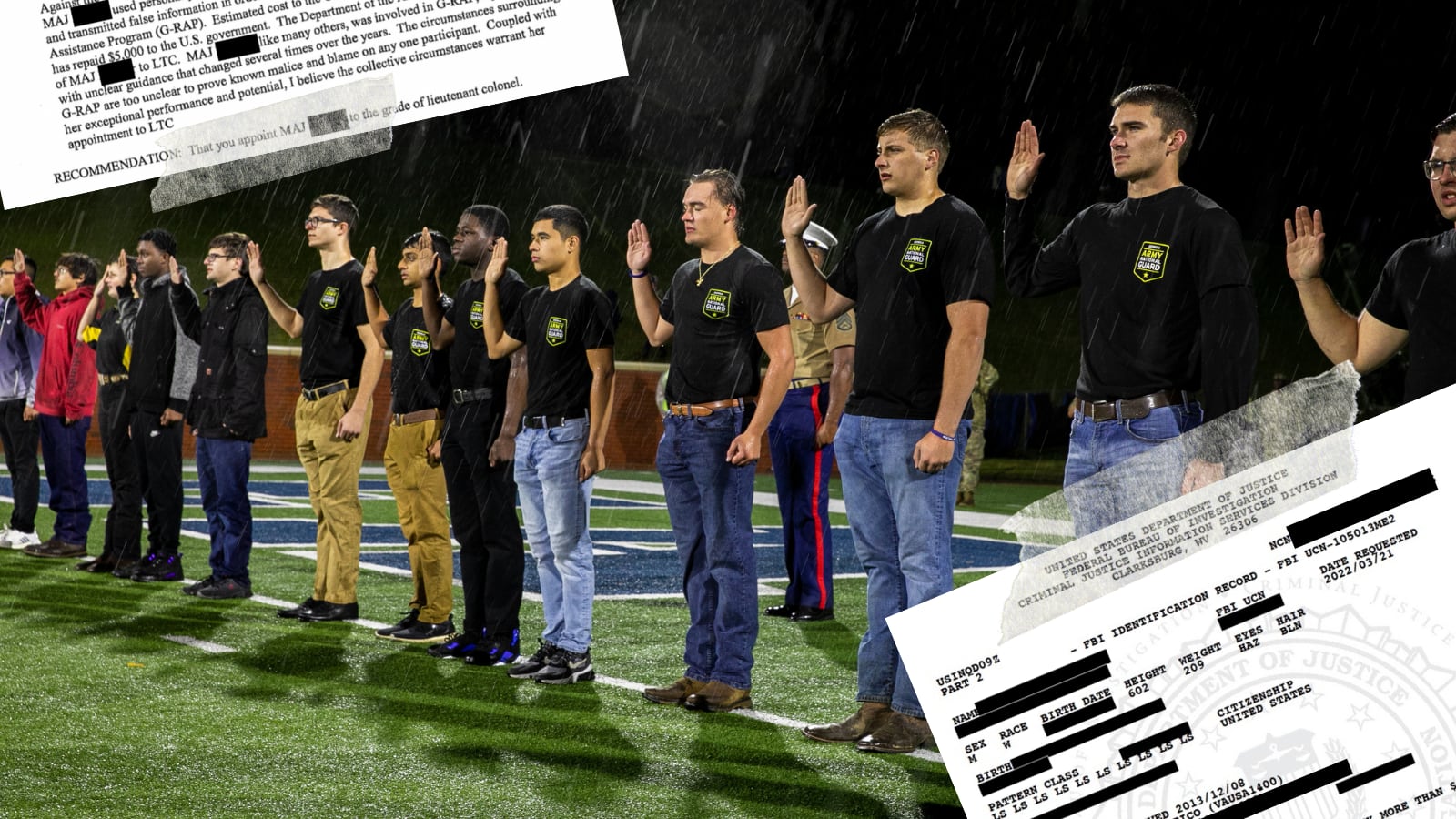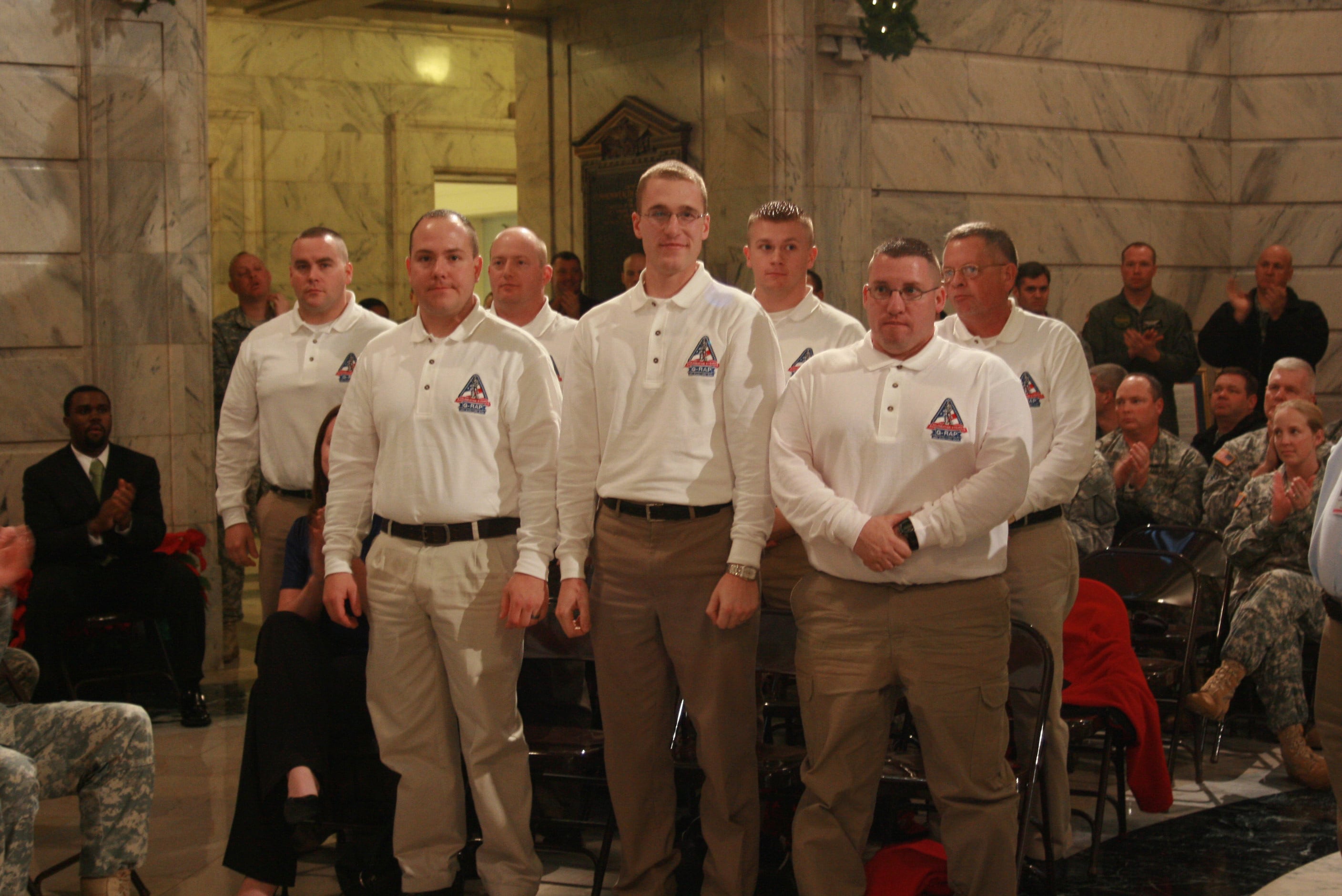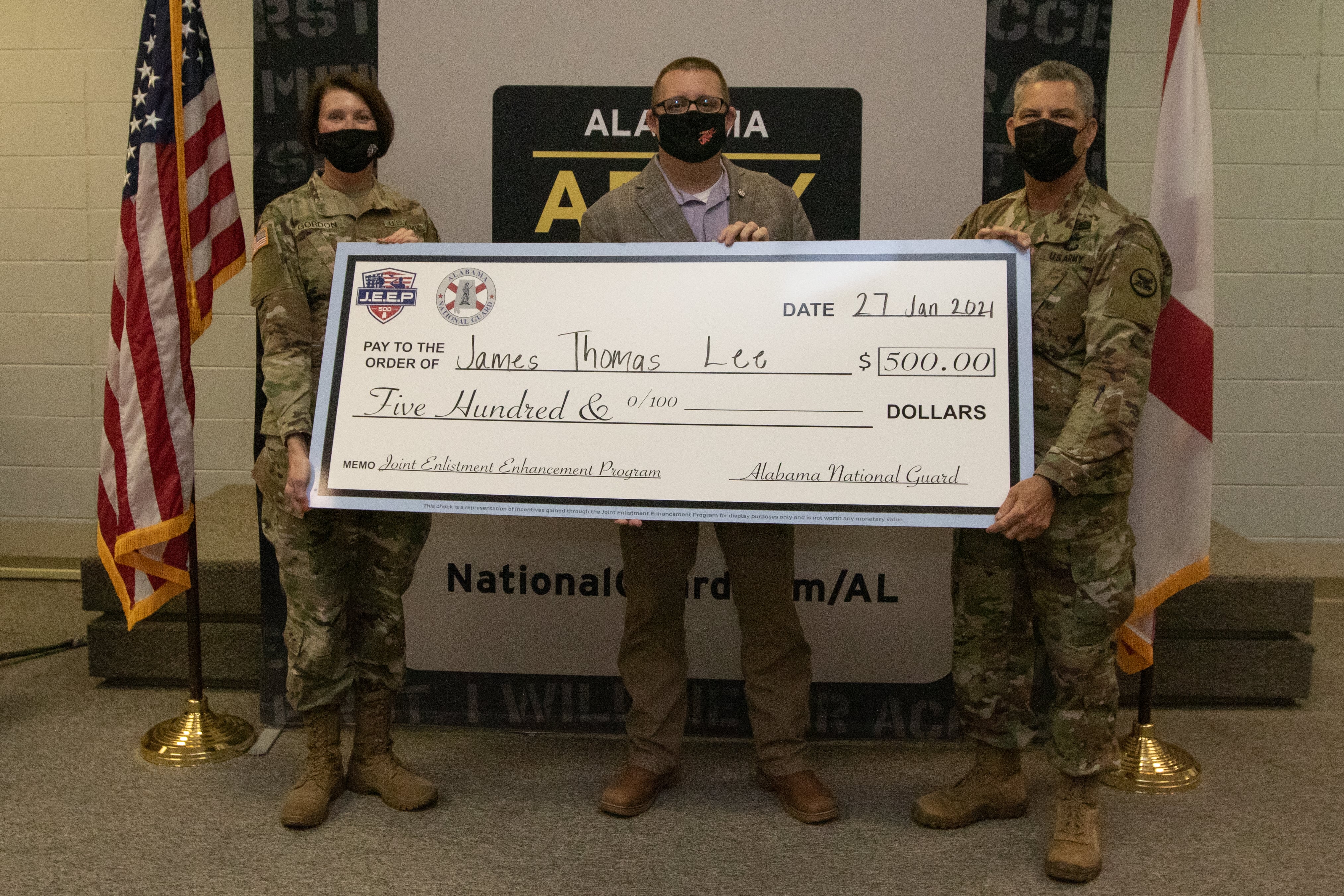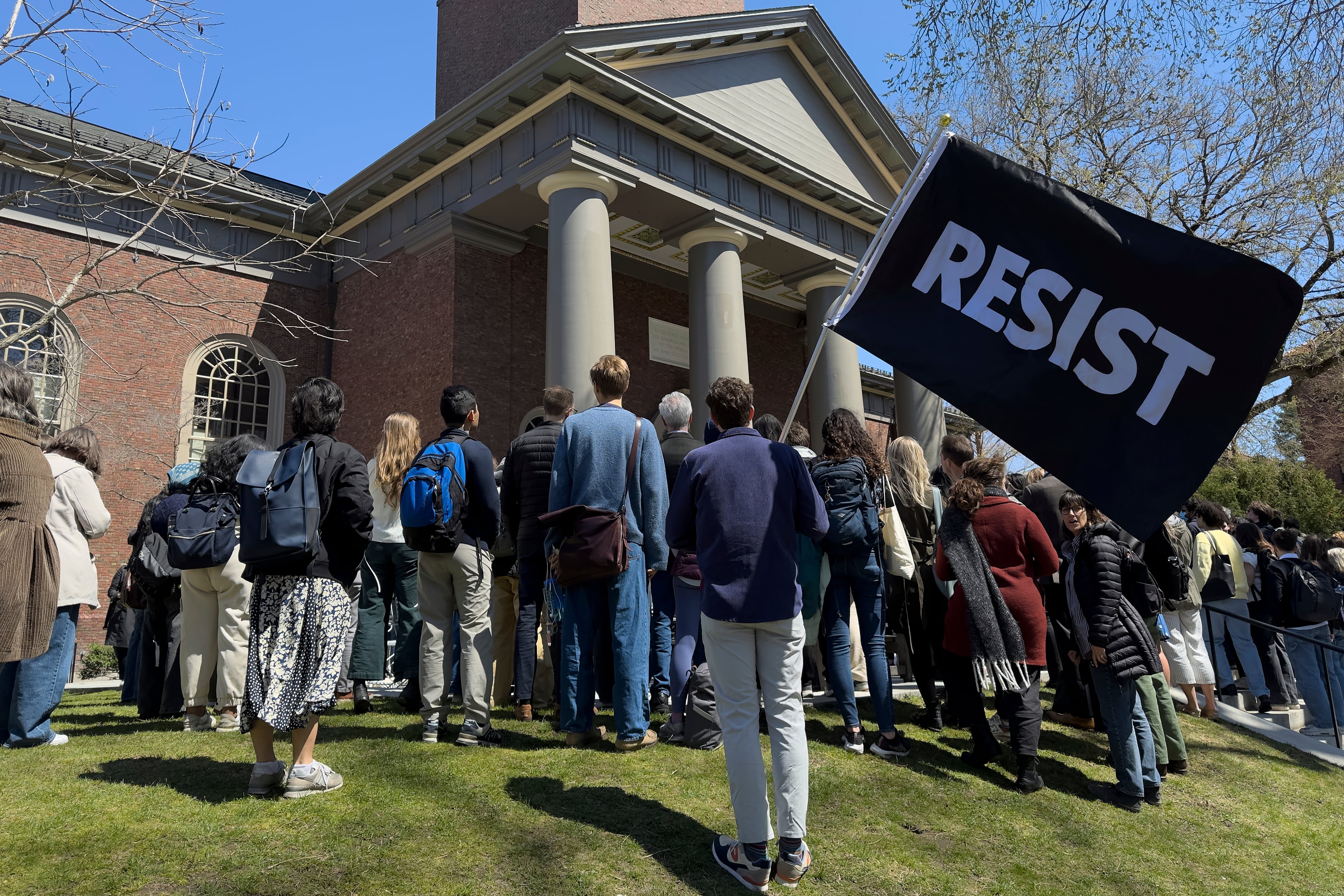They’ve done it before. It was controversial, and people went to prison, but it worked. And now it might return.
The Army National Guard is evaluating whether it should reestablish a national-level recruiting referral bonus program to address a worsening recruiting and end strength shortfall that could leave the nation’s part-time soldiers struggling to fulfill their myriad requirements.
The National Guard Bureau’s top general, Gen. Dan Hokanson, told reporters Sept. 20 that “we could really help make every single Guardsman a recruiter by paying them a bonus for anybody that they bring into the organization that’s able to complete their military training.”
Army Times contacted NGB officials and requested an interview with Hokanson or another official to discuss the details of their proposal, but a spokesperson declined the request, citing schedule conflicts.
“Previously, this worked at the height of our wars in Iraq and Afghanistan, and numerous recruiters and a lot of our leaders have brought this up as a potential option going forward as we look to recruit back to our full authorized end strength,” the general said.
The wartime program that Hokanson alluded to, the Guard-Recruiting Assistance Program, ran from 2005 to 2012 and offered enlistment referral bonuses of $2,000 to off-duty Guard troops working as civilian independent contractors for a private company, Docupak.
Around 130,000 soldiers joined during that period via G-RAP referrals, and the Guard quickly exceeded its end strength goals.
But the Army’s audit agency said in 2012 that the program could have experienced $92 million in fraud, garnering attention from lawmakers and sparking a massive Army Criminal Investigation Division investigation named Task Force Raptor. The bonuses were abruptly halted.
The investigations found some fraud, including a kickback ring in Texas, but never came close to identifying — or recovering — anything close to the $92 million figure auditors were worried about. Lawmakers urged them to press on.
Since then, troops caught up in the scandal who weren’t even charged with a crime have found their lives derailed by quietly-instituted administrative punishments called titling and indexing.
Their stories were subject of an Army Times investigation in April, and CID confirmed in July that it has reopened hundreds of G-RAP case files “to determine whether individuals were titled and indexed appropriately.”
RELATED

A spokesperson for the National Guard Association of the U.S., John Goheen, said the investigation overshadowed the program’s success.
“Lost in all the controversy was the fact that this particular program brought in tens of thousands of high quality soldiers at a time when the Army National Guard was under strength,” he said in a Thursday phone interview. "
What could be different, and what’s the same?
Although the circumstances that spawned the original version of G-RAP aren’t a perfect match to the Guard’s present-day numbers problem, a few common threads — such as overuse — emerge.
Last time the National Guard looked to a recruiting referral bonus program in late 2005, the Army’s part-time troops were reeling from a busy, bloody year.
According to Defense Department data, 180 Army Guardsmen died in Iraq or due to wounds suffered there in 2005, and two more died in Afghanistan. And when Hurricane Katrina devastated New Orleans that fall — with Louisiana’s 256th Brigade Combat Team overseas fighting in Baghdad — some 50,000 Guard troops were called up in response.

The already understrength Army Guard was asked to do a lot that year, and the G-RAP pilot launched in December 2005 with high hopes.
It was a quick success. By the program’s third anniversary in 2008, some 80,000 Guardsmen had joined on G-RAP referrals.
But auditors ultimately faulted NGB for failing to provide proper oversight of the contract, and said it lacked key safeguards to prevent potential fraud. The G-RAP rules also constantly changed, according to those faulted for purportedly violating them, and some recruiting assistants unwittingly violated federal privacy regulations to get required data for the program.
Today’s recruiting environment, where the COVID-19 pandemic affected applicant test scores and potentially accelerated a decrease in physical fitness among American youths, is different than 2005 — and perhaps tougher.
And while the Guard’s demand is of a different nature than 2005, today’s frequent and long-lasting domestic deployments (paired with continuing non-combat overseas commitments) may be pushing experienced troops to head for the exits. A Sept. 22 Military.com story said the Army Guard will miss its fiscal 2022 retention goals by approximately 14%, citing internal Guard data it obtained.
Hokanson, the NGB chief today, said any new referral bonus program would need “the right checks and balances in place” to be viable.
“The rules would have to be very clear as to who a soldier could recruit,” said NGAUS’ Goheen. “The rules changed during G-RAP, and it caused some confusion. [Having clear rules] would instill some confidence that soldiers could participate in this, recruit...and there would be no later repercussions.”
While details are scarce on any federally run Guard referral bonus programs that may soon emerge, some states have initiated their own models that could provide a blueprint for NGB to emulate.
Ongoing state programs
In recent years, a few states have launched state-funded and administered referral bonus programs. They include Alabama, Delaware, Vermont and Virginia. An NGB spokesperson said the bureau, which only coordinates federal resources, does not maintain a list of states who have their own referral bonus programs.
Shedding the tainted G-RAP moniker, three of the states call their program the Joint Enlistment Enhancement Program, or JEEP for short.
In Alabama, Delaware and Vermont, JEEP assistants can earn up to $500 for referring someone to the Army or Air National Guard who goes on to complete their initial entry training.

In a budget request document submitted to the state legislature in February, Vermont Guard officials said their JEEP pilot program launched in October 2020. Guard officials there said it quickly boosted their enlistment numbers and “utilization of this incentive program has greatly increased in FY22.”
Troops in Virginia can earn up to $750 per referred enlistment made through the state’s Referral Enlistment Program — $250 when they sign up, $250 when they finish training and a $250 “kicker” if the new member joins in a high-priority career field.
The state’s top general, Maj. Gen. Timothy Williams, called the program “an excellent opportunity for citizens of Virginia to help connect potential recruits with career opportunities in the Virginia National Guard” in a press release.
Virginia’s REP also differs in that any citizen of the state (other than uniformed recruiters and their household members) can sign up to refer prospective troops. That allows veterans and retirees to “make money while helping us meet our end strength goals and contribute to the overall readiness of the VNG,” Williams said.
Regardless of what form a “G-RAP 2.0″ could take, Goheen of NGAUS argued that the option needs to be on the table.
“We need something that could potentially jumpstart recruiting,” Goheen said.
Editor’s note: Davis Winkie, the author of this article, is a member of NGAUS.
Davis Winkie covers the Army for Military Times. He studied history at Vanderbilt and UNC-Chapel Hill, and served five years in the Army Guard. His investigations earned the Society of Professional Journalists' 2023 Sunshine Award and consecutive Military Reporters and Editors honors, among others. Davis was also a 2022 Livingston Awards finalist.




